How uterine fibroids can change with your body
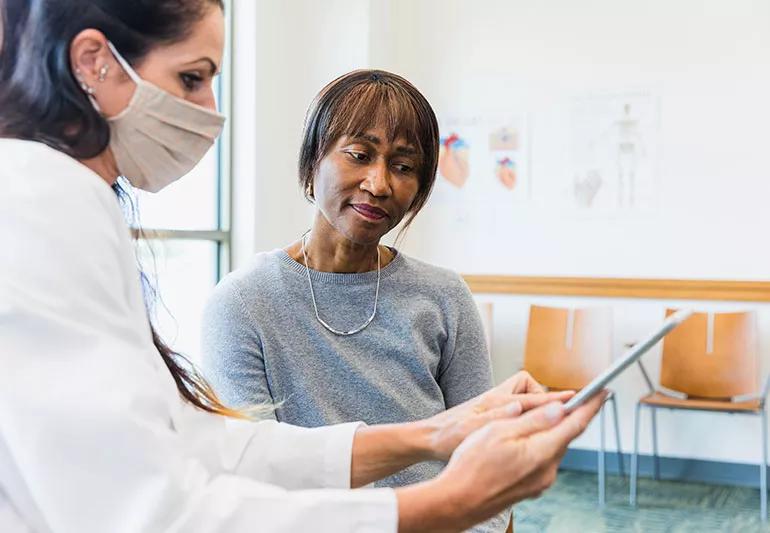
Uterine fibroids are incredibly common — up to 80% of women will develop them by age 50 — and can cause a variety of different symptoms, from incredibly mild to more intense. And while we don’t know what causes them, one thing we have learned is that these benign growths do change over time.
Advertisement
Cleveland Clinic is a non-profit academic medical center. Advertising on our site helps support our mission. We do not endorse non-Cleveland Clinic products or services. Policy
“We don’t know why they form,” says Ob/Gyn and women’s health specialist Linda Bradley, MD, “but we do know they usually form when your body is making estrogen.” As your body changes, so does your likelihood of developing uterine fibroids. Entering menopause is frequently associated with a decrease in fibroid-related symptoms.
During menopause, your body goes through a natural transition. After 12 consecutive months without a menstrual cycle, it marks the end of your reproductive years.
The lead-up to menopause is called perimenopause. During this time, you're likely to start experiencing some menopausal changes and symptoms.
Here are some of the changes that happen to your body during menopause:
So, how does menopause affect uterine fibroids?
It turns out, female hormones play a role in the formation of uterine fibroids. Hormones such as estrogen and progesterone increase the risk of getting fibroids. These hormones are most prevalent during your childbearing years (in premenopausal women).
When your body enters menopause, these hormones decrease.
“During menopause, your ovaries become quiet and no longer make estrogen,” explains Dr. Bradley.
Advertisement
As you get closer to menopause, your uterine fibroids may shrink and become less noticeable. For many, their fibroid-related symptoms go away completely. Also, when you begin menopause, your risk of developing new uterine fibroids decreases.
“When you stop your periods, the fibroids go to sleep,” says Dr. Bradley. “The ovaries make everything hibernate.”
While it’s extremely rare, fibroids can sometimes form in people who are postmenopausal but it’s currently unclear why this occurs. Even so, uterine fibroids — if they happen at all — will create much less severe symptoms post-menopause (or none at all).
Treatment options for uterine fibroids will depend on your age and the severity of your symptoms. There’s a variety of hormonal therapies and surgical interventions available before you reach menopausal age. But it’s important to remember that everyone’s body is different and everyone’s fibroids are different as well. “There’s no one magic pill,” says Dr. Bradley. “It’s like a thumbprint or a snowflake. They’re each unique and one of a kind. Because they’re all different sizes and in different locations, they can cause different symptoms.”
The good news is, uterine fibroids will likely leave you alone by the time you reach a certain age. Menopause itself will help reduce uterine fibroid symptoms. So, unless your healthcare provider says otherwise, you most likely won’t need additional treatment.
It’s also important to make sure that what you’re dealing with is indeed uterine fibroids.
According to Dr. Bradley, heavy bleeding can sometimes happen after menopausal age. And more often than not, she says this is not a sign of uterine fibroids returning or getting worse.
“Most likely there’s something else going on,” notes Dr. Bradley. “And that’s what we have to make sure people know. Don’t assume that they’re fibroids.”
For people who have experienced uterine fibroids in the past, they may assume that any intense bleeding later in life is also linked to their fibroids. However, Dr. Bradley stresses that it’s very rare for fibroids to be creating any symptoms post-menopause. So, if you’re experiencing bleeding post-menopause, it’s your body sending you a different sign. In this case, be sure to check in with your healthcare provider as soon as possible.
Your doctor will run other tests or scans to check for the causes of your symptoms. Likely, they will do a pelvic exam to figure out what else could be happening.
“You may need an evaluation of your endometrial health,” Dr. Bradley says.
Again, Dr. Bradley stresses that it’s rare for your fibroids to cause bleeding during menopause.
Advertisement
And if it turns out that you do still have uterine fibroids later in life, but they aren’t causing any symptoms, most likely they won’t need to be treated at all, advises Dr. Bradley.
“Our mantra is that if they don’t bother us, we don’t bother them,” she says.
Advertisement
Learn more about our editorial process.
Advertisement

To help manage symptoms, switch to more absorbent period products, make healthy lifestyle changes and explore treatment options
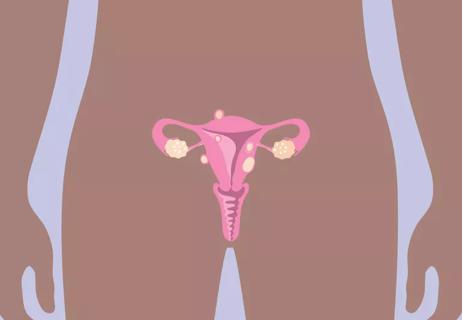
Depending on their size, these noncancerous growths can create an abdominal bulge
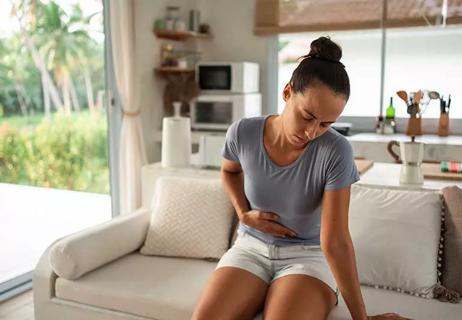
Depending on size and location, they can affect your rectum, stomach, bladder and kidneys

Eating more fruits and veggies and less red meat could help prevent or shrink fibroids
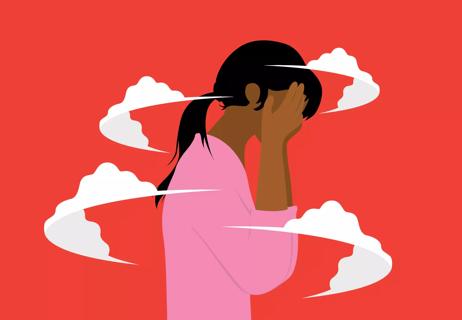
If you’re living through fatigue due to fibroids, there are ways to cope
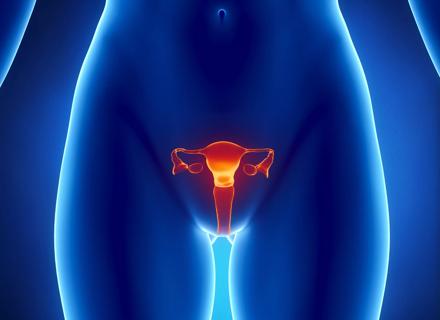
Treatments can help, besides a hysterectomy

It’s important to angle it toward your rectum or back, along the natural curve of your vaginal canal

Yes, you can pee with a tampon in; no, they won’t stretch out your vagina or make cramps worse!

Wearing a scarf, adjusting your outdoor activities and following your asthma treatment plan can help limit breathing problems

Your diet in the weeks, days and hours ahead of your race can power you to the finish line

When someone guilt trips you, they’re using emotionally manipulative behavior to try to get you to act a certain way